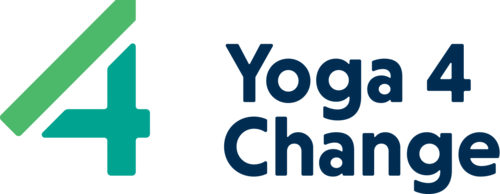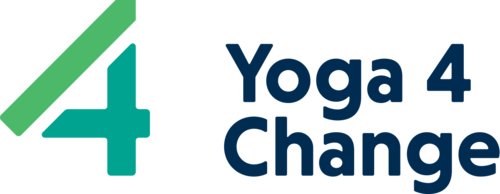We have a tendency to harshly judge ourselves, often times retrospectively, for the choices we’ve made or the actions we’ve taken. We waste precious time wishing that we had done things differently with the assumption that if we had we’d be in a different place today. If that weren’t counterproductive enough, we also often encourage an inner dialog in which we try to rationalize or convince ourselves that we either aren’t ready for or aren’t deserving of the things we want.
To get the things you want, action must follow desire. To embark on a journey and transform your life, you must deviate your attention from the past and begin focusing on the present. What can you do here and now to move in a direction that is aligned with your values and desires? Give yourself permission to accept that change is needed, whether that be related to your health and wellness, your relationships, your career, or your finances.
Below are some simple suggestions that will assist you as you evaluate the change you’re desiring in your personal life and then develop a plan of action to bridge the gap between where you are and where you desire to be.
Declare Your Intentions and Set Your Goals
Setting your intentions has the power to change your life. You may be asking yourself, “What’s the difference between a goal and an intention?” Goals are something you hope to achieve, but may fall short of. Intentions are something you plan to do, regardless of the outcome. By first setting your intentions, you establish a path in your mind and goals are then just milestones along that path.
Start Where You Are
If you wish to pursue a journey of transformation, you have to be honest with yourself about where you’re starting point is. Real change starts with compassionate honesty about the things that have held you back in the past and what may scare you about moving forward on your journey, either now or in the future.
You may wish to project the illusion that you are further along the path than you truly are. Embrace your starting line. Quiet your inner critic and accept yourself as you are, today, and acknowledge the effort and commitment that will be required of you to achieve your goals, and then get started. In the words of Arthur Ashe, “Start where you are. Use what you have. Do what you can.”
Focus on the Why
We can get caught up in the What and the How. It’s not only about the habits you’re trying to either break or form. It’s also about why you want to implement these life changes in the first place.
Finding the strength to continue during the difficult times often requires us to revisit the Why. Knowing your Why— the higher purpose that can fuel you even through the toughest of times — is critical. Your Why is what keeps you going even when everything seems to be working against you.
Slow, Steady, and Balanced
Don’t try to change everything at once. The pursuit of change is a marathon and not a sprint. It’s easy to grow frustrated if you expect instant results or have set an accelerated timeline for your journey of transformation.
Reflect on your childhood. You learned to crawl before you could walk, and you learned to walk before you could run. Even once you knew how to run, it took conditioning if you wanted to effectively run for long distances. Personal development is a process and the process must be respected.
Fail Forward Through Self Awareness
We tend to have a negative perception of failure and far too often we view it as an irreversible ending. The truth is, we can learn a lot from our failures. But, it takes a heightened level of self awareness and acceptance to examine a failure without judgement. Embrace failure as a natural, necessary part of progress.
When you try something and it doesn’t work, it can be easy to adopt a woe-is-me attitude. The key is to not view yourself as a victim of failure, but instead, empower yourself to adapt and course correct from what you learned as a result of failure. Examine where you went wrong and get systems in place to prevent those errors from occurring again. Even if failure isn’t your fault, take responsibility for your future success.
Setting Incremental Goals and Acknowledging Your Progress
Stop placing all of the emphasis on the end goal. Instead, shift your focus to daily practices that you can put into action right now. Small changes can lead to shifts in behavior and accumulate over time to create massive change.
When you look at the big picture, it’s easy to get discouraged at everything that needs to happen to create change. The best way to approach making change is to focus on your next steps. Don’t get caught up looking at your goals as a whole. Instead, break them down into incremental goals that you can work towards every day. Incremental goals are also rewarding because a series of accomplishments along the way to your larger goal helps generate momentum and can keep you moving forward.
A good goal follows the SMART format. SMART goals are:
- Specific
- Measurable
- Achievable
- Relevant
- Time-Framed
Put structures and systems in place to measure and record your progress. For some, a visual representation of your successes helps maintain forward progress. If you respond well to visuals, dedicate a calendar to your personal growth and establish icons that can be used to denote every day you take an action that is inline with your goals. At the very least, explore journaling by documenting what you learn about yourself and your place in the world as you continue on your path.
Routines and Structure
We have the tendency to run from the word routine because in our minds it’s often synonymous with a strict regimen that is void of fun and spontaneity. But the truth is, a routine is just a schedule that allows you to optimize how you use your time, energy, and resources. It is something that you do over and over again until it becomes habit. Routines can provide you with a sense of structure and stability that allows you to organize your life in a way that makes sense to you.
Actively building a daily routine for yourself can help you introduce good habits into your day-to-day life. Developing a routine is your way of consciously determining how you’ll use your time, energy, and resources to pursue the things that are most important to you. Routines shift your attention from avoiding old bad habits to forming new healthy habits.
Have an Accountability Partner
Motivation may get you started, but when it comes to achieving a goal and sustaining results, you may need to rely on more than just your desire to succeed. An accountability partner is a person who helps to keep you committed. You can check in with an accountability partner by email, phone, or in person.
The American Society of Training and Development (ASTD) conducted a study and found that individuals have a 65% chance of completing a goal if they commit to someone. A person can increase their chance of success by up to 95% f they have regularly scheduled accountability sessions with the person to whom they’ve committed.
Accountability partners not only keep you on track. They can also serve as your biggest cheerleader and be there to celebrate the milestones along your journey with you.
Thank you for reading. If you found this information beneficial, please consider making a sustainable donation to Yoga 4 Change. Your donation is used to support our core programs and helps us fulfill our mission. Please click below to donate online. You can make a one time or reoccurring tax deductible contribution.







